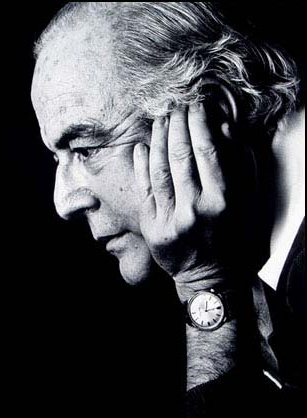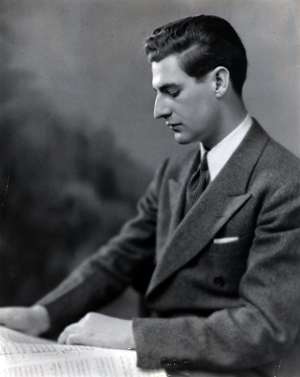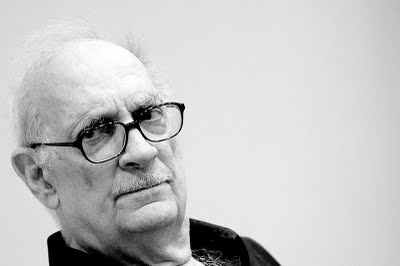New World members brings impressive commitment to varied American program
The New World Symphony’s “American Compatriots” chamber concert Sunday afternoon at the Lincoln Theater in Miami Beach presented scores by Samuel Barber and Gian Carlo Menotti and an ambitious work for two pianos and percussion by the iconoclastic George Crumb. Any connection between Crumb’s avant garde phantasmagoria and the conservative pieces of the program’s first half rested solely on the composers’ nationality.
Two pieces by Barber celebrated the 100th anniversary of the composer’s birth. The works spanned Barber’s earliest creative efforts and his final extant score. For many years Barber was unjustly derided for the conservative idiom and emotionality of his scores. The passage of time has finally produced a more balanced assessment of his output. Despite his lifelong adherence to tonality, Barber’s small but distinguished oeuvre embraces a plethora of stylistic impulses from the lyrical Violin Concerto to the edgy outbursts of the Piano Sonata (written for Vladimir Horowitz) and his Medea ballet. He was a master craftsman and an aesthetic perfectionist who withheld many works that he felt were below his best artistic standards.
The concert opened with Barber’s Canzonetta for oboe and piano, the slow movement of an unfinished oboe concerto, commissioned for legendary New York Philharmonic oboist Harold Gomberg. Barber had a particular gift for writing haunting, ruminative slow movements, and the Canzonetta is melodically enthralling, tempered by autumnal sadness. This brief vignette is a heartfelt farewell that speaks in a direct, compelling manner to the listener. Oboist Alison Chung’s lovely tone and carefully spun phrasing was ably accompanied by pianist Hyojin Ahn, spinning surging melodic patterns with aplomb.
By contrast Barber’s Dover Beach for baritone and string quartet, Op. 3 (completed in 1931) is more cerebral and austere. Based on a poem by Matthew Arnold, the pessimistic tone of Barber’s vocal declamation is powerful and striking. The piece’s dark aura remains remarkably contemporary, the final lines “We are here on a darkling plain swept with confused alarms of struggle and fight, Where ignorant armies clash by night” still potent and relevant.
Barber’s mood painting here is masterful, his vocal writing, even at this early stage, idiomatic and beautifully crafted. Baritone Randall Scarlata brought the refined artistry and word coloring of a great lieder singer, graced with a voice of depth and impeccable intonation. A string quartet of New World fellows played with subtle shading and secure technique but could have used greater passion and fervor.
Barber’s life partner Gian Carlo Menotti was represented by his Suite for two cellos and piano, written in 1973 for Gregor Piatigorsky. While best known as an operatic composer, Menotti created numerous instrumental scores. The duo cello suite showcases his ability to spin an appealing melodic line without the over-the-top melodrama of some of his stage works. With an opening theme right out of operatic verismo, the suite proceeds to a scherzo that features a catchy tune in the vein of Wolf-Ferrari. An Arioso sings a flowing, songful theme that recalls the barcarolle from Menotti’s ballet score Sebastian. A breezy, jazz tinged finale concludes this felicitous confection. Cellists Christine Christensen and Sara Sitzer displayed impressive instrumental command, playing with dark tonal hues at rapid speed, meeting Menotti’s bravura challenges head on. Michael Linville, New World’s associate dean and director of chamber music activities, provided strong piano support.
Octogenarian George Crumb’s scores combine eerie soundscapes with performance art in a genre of their own. Music for a Summer Evening, scored for two pianos and percussion, features such exotic instruments as prepared pianos, Tibetan prayer stones, slide whistles African thumb piano as well as singing and chanting. In the final movement, amplified prepared keyboards play a fugue from Book II of J.S. Bach’s Well Tempered Clavier.
The result might be termed spaced-out Bach. With its array of bells, cluster chords and strumming of piano strings, this score is a wild ride. Ahn and Linville were dazzling in the nearly impossible keyboard roles while percussionists Sergio Carreno and Robert Klieger handled their rapid-fire battery of special effects like child’s play in a tour de force performance.
Posted in Performances
Leave a Comment
Mon Mar 22, 2010
at 12:40 pm
No Comments









